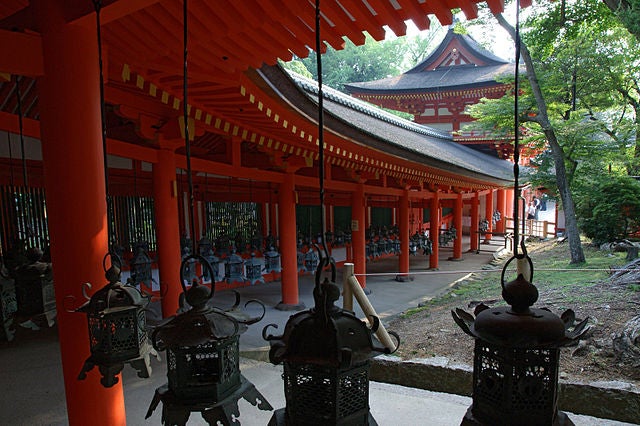Socrates Program: 2023 Summer Seminars
Socrates Summer Seminars
The Socrates Program is excited to host our annual Summer Seminars this July 7th-10th in Aspen, CO. Seminar tuition is $2,500. Limited scholarships are available by application. If you would like to apply for a scholarship, please do so here. We will be hosting six seminars with new and veteran moderators.
The Geoeconomics of Sovereign Funds in an Age of Competitive Industrial Policies
SOLD OUT
The term “industrial policy” was once shunned in free market economies like the United States, but times have changed. Policymakers in the United States, European Union, and other major western economies have fully embraced this once-taboo approach to state-market relations. This shift in attitude in the West has been fueled by challenges posed by supply chain disruptions and great power competition between the United States and China. While China’s Party-State’s implementation of industrial policies has played a key role in China’s rapid transformation from one of the poorest economies in the world to the second-largest economy, it is the Party-State’s ability to create sovereign funds and mobilize capital that has enabled it to finance its ambitions. Besides China, many hydrocarbon-based authoritarian states, such as Saudi Arabia, have also leveraged their sovereign funds to finance their industrial policies and economic diversification plans. How do these varieties of sovereign funds differ in terms of politics and financial structures? Do their investments in western high-tech industries pose a national security threat to the United States, its allies, and partners? How should the U.S. government respond to undesired foreign direct investments by sovereign funds? Does the west’s sanction of Russia’s sovereign fund suggest that these funds could also be a source of vulnerability for the home countries? Does the West’s embrace of industrial policy suggest that major western economies like the United States are embracing China’s model of economic growth? This seminar will explore these issues and evaluate how state-market relations have changed with the rise of sovereign funds and industrial policies.
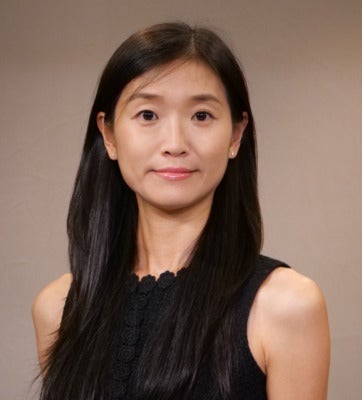 Moderator: Zongyuan Zoe Liu is a fellow for international political economy at the Council on Foreign Relations (CFR). Her work focuses on international political economy, global financial markets, sovereign wealth funds, supply chains of critical minerals, development finance, emerging markets, energy and climate change policy, and East Asia-Middle East relations. Dr. Liu’s regional expertise is in East Asia, specifically China and Japan, and the Middle East, specifically Gulf Cooperation Council countries. Dr. Liu is the author of Can BRICS De-dollarize the Global Financial System? (Cambridge University Press) and Sovereign Funds: How the Communist Party of China Finances its Global Ambitions (Harvard University Press, forthcoming 2023).
Moderator: Zongyuan Zoe Liu is a fellow for international political economy at the Council on Foreign Relations (CFR). Her work focuses on international political economy, global financial markets, sovereign wealth funds, supply chains of critical minerals, development finance, emerging markets, energy and climate change policy, and East Asia-Middle East relations. Dr. Liu’s regional expertise is in East Asia, specifically China and Japan, and the Middle East, specifically Gulf Cooperation Council countries. Dr. Liu is the author of Can BRICS De-dollarize the Global Financial System? (Cambridge University Press) and Sovereign Funds: How the Communist Party of China Finances its Global Ambitions (Harvard University Press, forthcoming 2023).
A More Inclusive Republic: The LGBTQ+ Community from Clandestine Minority to Political Mainstream
For decades, homosexuality was a taboo. The mere suggestion that a person might be gay destroyed reputations, ended careers, and ruined lives. As America entered the Second World War and assumed the responsibilities of a global superpower, a culture of secrecy descended, and with it, a fear of those who harbored the most dangerous secret of all. In the Cold War that was to follow, the “offense too loathsome to mention” on the floor of the United States Senate paradoxically assumed an enormous, terrifying power. As fear of homosexuality became intertwined with the growing threat of international communism, a “Lavender Scare” emerged alongside the “Red Scare,” leading to a purge of gay men and lesbians from the federal government. Over time, the secret of homosexuality would influence everything from the rise and fall of McCarthyism, the rivalry between the CIA and the FBI, the struggle for African-American civil rights, the Watergate scandal, and the conservative movement which catapulted Ronald Reagan to the presidency.
In this seminar, participants will study the ways in which fear and fascination of homosexuality impacted American history and foreign policy over the course of the 20th century. Beginning with Franklin Delano Roosevelt and proceeding through every presidential administration through to that of Bill Clinton, we will examine the many personalities, scandals, and debates that impacted public perceptions of same-sex desire, and come to a better understanding of how gay people went from being among the most despised of minority groups to full and equal American citizens. The seminar will conclude with a discussion of the current furor over gender identity and the ongoing debate within the LGBTQ+ community about the virtues of assimilation versus liberation.
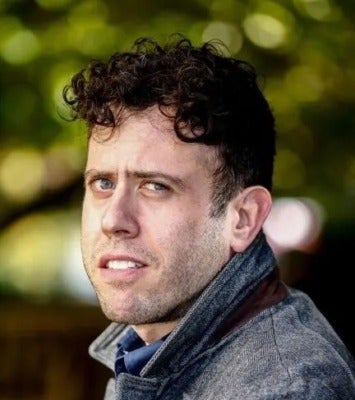 Moderator: James Kirchick is a columnist for Tablet magazine, a writer at large for Air Mail, and author of the instantNew York Times bestseller, Secret City: The Hidden History of Gay Washington. A widely published journalist, he has reported from over 40 countries, and his reportage, essays, and reviews have appeared in the New York Times, The Washington Post, Wall Street Journal, the Los Angeles Times, the Frankfurter Allgemeine Zeitung, Spectator, The Atlantic, New York Review of Books, New York, Rolling Stone, and the Times Literary Supplement, among many other publications within the United States and around the world. His first book, “The End of Europe: Dictators, Demagogues and the Coming Dark Age,” was published by Yale University Press in 2017.
Moderator: James Kirchick is a columnist for Tablet magazine, a writer at large for Air Mail, and author of the instantNew York Times bestseller, Secret City: The Hidden History of Gay Washington. A widely published journalist, he has reported from over 40 countries, and his reportage, essays, and reviews have appeared in the New York Times, The Washington Post, Wall Street Journal, the Los Angeles Times, the Frankfurter Allgemeine Zeitung, Spectator, The Atlantic, New York Review of Books, New York, Rolling Stone, and the Times Literary Supplement, among many other publications within the United States and around the world. His first book, “The End of Europe: Dictators, Demagogues and the Coming Dark Age,” was published by Yale University Press in 2017.
Taking the Stage: Ronald Reagan’s first term and the Cold War
Ronald Reagan remains one of the most consequential and enigmatic US presidents of the past century. His admirers and detractors alike agree that he pursued a transformative foreign policy. The remarkable geopolitical changes of the 1980s and 1990s, including the peaceful end of the Cold War, collapse of the Soviet Union, and global spread of democracy, cannot be understood without understanding the Reagan administration’s foreign policies. This first of a two-part seminar series (the second part will cover Reagan’s second term) will explore how in his first presidential term Reagan developed and implemented his Cold War strategy and other policies, amid the squabbling and divisions of his “team of rivals” advisors. Seminar participants will investigate a transformative geopolitical moment through the lens of an American President. Together the group will explore how much one geopolitical power and one leader can shape – or be shaped by — the course of world events.
This seminar is the first part of a two-part seminar series. Dr. Inboden is scheduled to return to our Winter 2024 Socrates Seminar to continue on President Reagan’s legacy.
 Moderator: William Inboden is Executive Director and William Powers, Jr. Chair at the Clements Center for National Security at the University of Texas-Austin. He also serves as Associate Professor at the LBJ School of Public Affairs, Distinguished Scholar at the Robert S. Strauss Center for International Security and Law, and Editor-in-Chief of the Texas National Security Review. Inboden’s other current roles include Associate with the National Intelligence Council, member of the CIA’s Historical Advisory Panel, member of the State Department’s Historical Advisory Council, Senior Fellow with the Trinity Forum, Steering Committee for the Reagan Institute Strategy Group, and member of the Advisory Board for the Vandenberg Coalition. Previously he served as Senior Director for Strategic Planning on the National Security Council at the White House, where he worked on a range of foreign policy issues including the National Security Strategy, strategic forecasting, democracy and governance, contingency planning, counter-radicalization, and multilateral institutions and initiatives. His most recent book is The Peacemaker: Ronald Reagan, the Cold War, and the World on the Brink.
Moderator: William Inboden is Executive Director and William Powers, Jr. Chair at the Clements Center for National Security at the University of Texas-Austin. He also serves as Associate Professor at the LBJ School of Public Affairs, Distinguished Scholar at the Robert S. Strauss Center for International Security and Law, and Editor-in-Chief of the Texas National Security Review. Inboden’s other current roles include Associate with the National Intelligence Council, member of the CIA’s Historical Advisory Panel, member of the State Department’s Historical Advisory Council, Senior Fellow with the Trinity Forum, Steering Committee for the Reagan Institute Strategy Group, and member of the Advisory Board for the Vandenberg Coalition. Previously he served as Senior Director for Strategic Planning on the National Security Council at the White House, where he worked on a range of foreign policy issues including the National Security Strategy, strategic forecasting, democracy and governance, contingency planning, counter-radicalization, and multilateral institutions and initiatives. His most recent book is The Peacemaker: Ronald Reagan, the Cold War, and the World on the Brink.
The New Industrial Age: Technology, Resilience, and the Future of U.S. Global Leadership SOLD OUT
In 1791, Treasury Secretary Alexander Hamilton outlined a path for spurring industrial development as a means to make the nation independent of foreign nations. Over 230 years later, the United States appears poised to launch a resurgent, progressive industrial policy. The bipartisan passage of the CHIPS and Science Act signals a recognition that the United States must out-innovate its strategic competitors to ensure that the United States is not beholden to unfriendly nations for critical supplies and strategic manufacturing capabilities. Government investments in green infrastructure and incentives for manufacturing and the key building blocks for green energy domestically, such as electric vehicle batteries, attempt to link America’s industrial future to innovation that drives toward a sustainable future.
In this seminar, we will explore the critical challenges and opportunities in this new industrial age. How do we build a resilient, competitive supply chains that preserves U.S. global leadership in the twenty-first century? How do we distinguish between protectionism and economic security and the U.S. as the leader of a rules-based international economic order? How can business, government, technology, and social sector organizations work together towards a more resilient, equitable, and sustainable economic future?
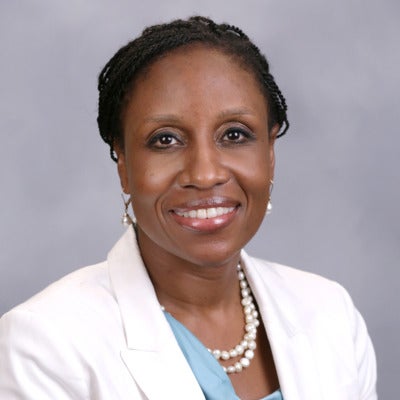 Moderator: Laura Taylor-Kale is an expert in U.S. foreign and economic policy, technological innovation, strategy, and organizational behavior. Dr. Taylor-Kale has also held senior positions in government and think tanks including her current role as industrial base policy chief at the Department of Defense and in the Obama Administration as Deputy Assistant Secretary of Commerce for Manufacturing, at the U.S. Development Finance Corporation, and the World Bank. She began her career in the U.S. Department of State serving as a career foreign service officer (diplomat) in Asia and Africa.
Moderator: Laura Taylor-Kale is an expert in U.S. foreign and economic policy, technological innovation, strategy, and organizational behavior. Dr. Taylor-Kale has also held senior positions in government and think tanks including her current role as industrial base policy chief at the Department of Defense and in the Obama Administration as Deputy Assistant Secretary of Commerce for Manufacturing, at the U.S. Development Finance Corporation, and the World Bank. She began her career in the U.S. Department of State serving as a career foreign service officer (diplomat) in Asia and Africa.
21st Century Leadership – How to Lead Authentically in Fractured Times
SOLD OUT
What does it mean to be a leader? We have defined and studied leadership over the past century, but our leaders seem to be grasping in this moment to unify their teams, constituents, and followers. Join us to learn about examples of exemplary leadership and to discuss case studies of successes and failures. Participants will explore how technology and connectivity are impacting the demands on leaders and ask how leaders can successfully navigate these new spaces.
 David Gergen is a professor of public service and founding director of the Center for Public Leadership at the Harvard Kennedy School. In the past, he has served as a White House adviser to four U.S. presidents of both parties: Nixon, Ford, Reagan and Clinton.
David Gergen is a professor of public service and founding director of the Center for Public Leadership at the Harvard Kennedy School. In the past, he has served as a White House adviser to four U.S. presidents of both parties: Nixon, Ford, Reagan and Clinton.
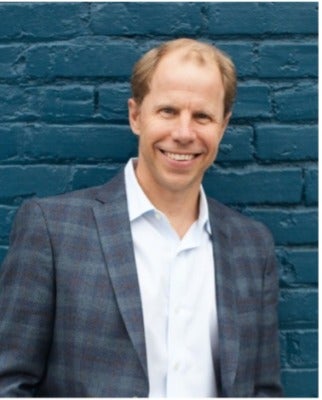 Christopher Gergen is founding partner of Forward Impact, a for-benefit advisory firm and investment fund that works with philanthropists, policymakers, corporations, and investors committed to scaling systemic solutions addressing persistent economic inequities. Christopher is a 2013 Henry Crown Fellow at the Aspen Institute where he was named a Braddock Scholar.
Christopher Gergen is founding partner of Forward Impact, a for-benefit advisory firm and investment fund that works with philanthropists, policymakers, corporations, and investors committed to scaling systemic solutions addressing persistent economic inequities. Christopher is a 2013 Henry Crown Fellow at the Aspen Institute where he was named a Braddock Scholar.
From AI to Co-Creation: Democracy Now
(Please Note: This seminar will be offered to Society of Fellows members and senior Socrates alumni. If you are interested in this seminar, please email our team directly.)
What is democracy today? Per ChatGPT, “democracy continues to be a system of government where power is held by the people through elected representatives. However, democracy has evolved . . . One significant development in 21st-century democracy is the increasing use of digital technologies to enhance citizen participation and engagement in the political process.”
Does the wizard ChatGPT knowingly pull back the curtain here on its/his/her/their own operations? In this fleeting expression of the black box AI that worries us, we find both the core challenge to and new promise of a viable democratic order. In three sessions, our seminar “From AI to Co-Creation: Democracy Now” explores the connection between evolving digital technologies and the political culture that we experience today.
While platforms evolve in Silicon Valley, climate change, war, and poverty drive population flows across the globe. Faced with this stark virtual/physical tension, we consider the forces that have modulated the tech-utopian vision of the late 20th century, ask about its intended and unintended consequences, and imagine what we might do today to produce the flourishing that we have, over the centuries, defined as the good life.
We begin with Steve Jobs’ 1984 introduction of the Macintosh, look at where the tech’ giants are today, and confront viruses as a metaphor for life on social media and real life in the ongoing COVID-19 pandemic. We explore nature as strategy and counterparty, forcing us to reconsider our species identity and with it, our relation to other species and the species that we might engender. We surface the concept of co-creation as a practical means of fusing technology, culture, design, politics, and the economy. We ask, finally, whether we have the potential, thanks to technologies only partially of our own devising, to become the democracy we have always intended. “From AI to Co-Creation: Democracy Now” suggests that we must still, as a species and a notion, find the prompt that will put us on the road to fulfillment for all.
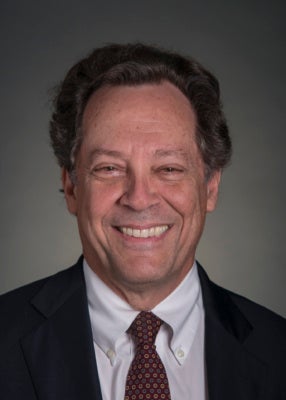 Moderator: Leigh Hafrey is Senior Lecturer in Behavioral and Policy Sciences at the MIT Sloan School of Management. Since 1995, he has offered courses in communication, ethics, and leadership in the MBA and other graduate programs in the U.S. and abroad. He has also taught at Harvard Business School; served as co-Master of Mather House, one of the undergraduate residences in Harvard College; and for more than 20 years has moderated seminars in programs of the Aspen Institute. He serves on the boards of the Green Rural Opportunities Fund, a spin-off of the Butajira, Ethiopia-based GreenPath Food, and ClassACT HR73, an alumni initiative of the Harvard-Radcliffe Class of 1973. A former staff editor at The New York Times Book Review, Hafrey has published translations from French and German and columns, feature articles, essays, reviews, and interviews in The New York Times and other periodicals, as well as blog posts and business case studies for MIT Sloan. He is the author of two books on values and leadership, The Story of Success: Five Steps to Mastering Ethics in Business (2005) and War Stories: Fighting, Competing, Imagining, Leading (2016). Hafrey holds an A.B. in English Literature from Harvard College and a Ph.D. in Comparative Literature from Yale University.
Moderator: Leigh Hafrey is Senior Lecturer in Behavioral and Policy Sciences at the MIT Sloan School of Management. Since 1995, he has offered courses in communication, ethics, and leadership in the MBA and other graduate programs in the U.S. and abroad. He has also taught at Harvard Business School; served as co-Master of Mather House, one of the undergraduate residences in Harvard College; and for more than 20 years has moderated seminars in programs of the Aspen Institute. He serves on the boards of the Green Rural Opportunities Fund, a spin-off of the Butajira, Ethiopia-based GreenPath Food, and ClassACT HR73, an alumni initiative of the Harvard-Radcliffe Class of 1973. A former staff editor at The New York Times Book Review, Hafrey has published translations from French and German and columns, feature articles, essays, reviews, and interviews in The New York Times and other periodicals, as well as blog posts and business case studies for MIT Sloan. He is the author of two books on values and leadership, The Story of Success: Five Steps to Mastering Ethics in Business (2005) and War Stories: Fighting, Competing, Imagining, Leading (2016). Hafrey holds an A.B. in English Literature from Harvard College and a Ph.D. in Comparative Literature from Yale University.
Frequently Asked Questions:
What is a Socrates seminar?
The Socrates Seminar is a roundtable discussion / collaborative weekend-long event for participants from different fields. Participants are asked to contribute their understanding of and reactions to carefully selected readings, with the guidance of moderators who are experts in their sector. This is not a panel discussion, nor is it a tutorial where the experts share their knowledge. The roundtable discussion format is a multilateral debate moderated by the moderator(s). The seminars are held on Aspen Meadows Resort campus.
How many seminars can I participate in?
You will register for one seminar of up to 24 participants for the entire weekend. Meals and programming will be enjoyed with the entire group which includes participants from all five concurrent seminars.
What if my preferred seminar is sold out?
Unfortunately, each seminar is capped at a certain amount and we might not be able to accommodate your request. We urge you to apply as soon as possible but if you would like to discuss the seminars further, please reach out the Socrates Team directly via email and one of our team members will assist you.
What does tuition cover?
Tuition includes seminar attendance and materials and meals during the program, which begins at 6pm on Friday evening and ends at 1pm on Monday after lunch.
Are scholarships available?
Scholarships for tuition assistance are available through the Socrates Program. The application can be found here. Please note: Scholarships are awarded on a rolling bases. We encourage you to apply as soon as possible.
Can I bring a guest?
If you would like to bring a guest to join you for meals, you are welcome to for $600.00. These both can be purchased as add-ons when you register.
What transportation will be provided at the event?
If you are a guest of the Aspen Meadows Resort, they will take care of your arrival and departure transportation to and from the airport. If you are staying at an alternative location, taxis and a free local bus are available.
The Aspen Meadows offers a complimentary shuttle that runs into Aspen every 30 minutes.
What is the timing of the seminars and programming for the weekend?
To join for the whole experience, you will want to arrive in Aspen by 6pm on Friday and depart after 12pm on Monday. In the summer, we start our seminars with an opening night cocktail hour/dinner and seminars run from 8am-12pm until Monday.
You are welcome to explore and engage with everything Aspen has to offer in the afternoons. We have partnered with Blazing Adventures to offer some special trips to Socrates participants.
What is the dress codes for the seminar?
Although we do not require a specific dress code, most people dress business casual and comfortable in the seminar rooms and bring something a bit more dressy for the evenings. We recommend that you dress for warmth and comfort in both the Winter and Summer. Please wear sturdy shoes that will allow you to walk through snow and/or mud.
Health and Safety Guidelines for In Person Events
The Aspen Institute is committed to creating a safe seminar experience for all participants. Please see our COVID-19 safety guidelines here.
These guidelines will be regularly updated to meet the latest health and safety guidance of the CDC and local authorities. If you anticipate any issues or have any concerns, please contact us at socrates@aspeninstitute.org.
